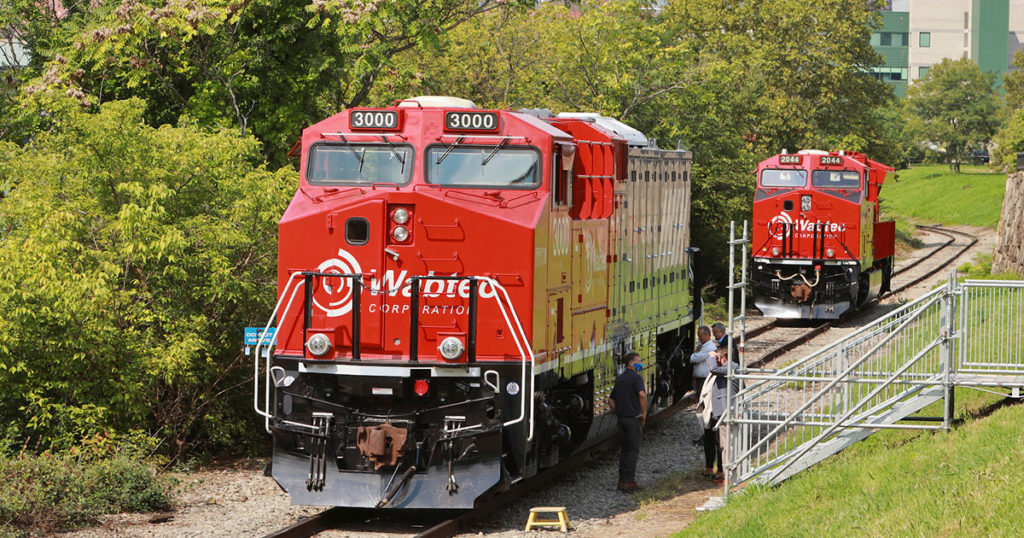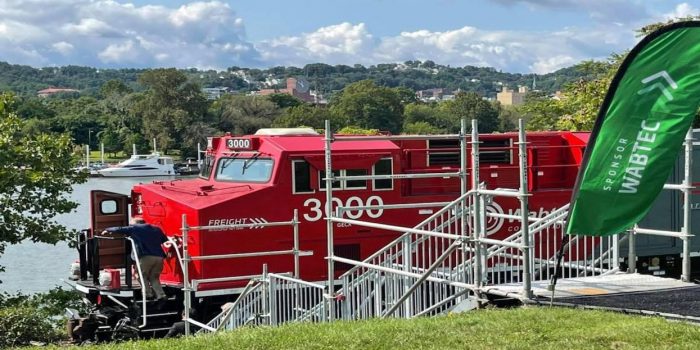After the launch of electric cars, electric bikes, and electric helicopters, there is a new electric train in the market. This vehicle was introduced at an event in Pittsburgh on Friday. The aim is to eliminate carbon emissions to preserve the earth, backed by US lawmakers.
Wabtec is a freight company in Pittsburgh that exhibited its vehicle at Carnegie Mellon University. This rail will move the 1.7bn tons of shipment that is sent through American railroads every year.
The exhibition happened at the banks of the Monongahela River where the cherry red, 75ft-long train gave out a striking background to politicians, rail executives, and academics who wish to reduce dependence on fossil fuels. People were asked to climb up the train and see for themselves. It has 500 lithium-ion battery modules, arranged in stacks in the center of the vehicle.

The name of the train is FLXdrive battery-electric locomotive. It reduces fuel consumption by 11%. The company is building hydrogen fuel cells to eradicate emissions. It is estimated that they can be cut by 300 million tons per year in the US with this initiative. “A bolder, cleaner, more efficient transportation system is in our grasp,” said Raphael Santana, chief executive of Wabtec. “This is just the beginning.”
The rail freight industry is now worth around $80bn and spans 140,000 miles of track across the US. It was said that little attention is paid to rail freight although it is also a significant component of the shipping industry with a 7% share in the market. The train will be a 7-megawatt battery vehicle, which is “100 times the power and energy within a Tesla – it’s dramatically more powerful”, said Eric Gebhardt, Wabtec’s chief technology officer, as reported by The Guardian.

“This is a very exciting moment – battery technology is developing extremely quickly now,” he said. “People talk about autonomous cars, but I think progress on rail is significantly closer than that. We see interest from the federal government in supporting this and I think that would be very helpful.”


